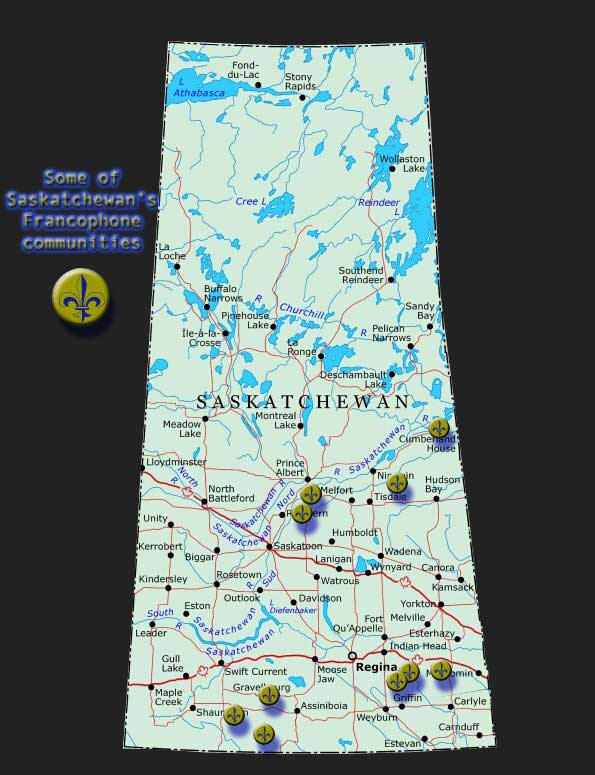|
|
|||||||
|
Sounds like Canada |
|||||||
| White Rock B.C. - Thursday, March 18, 2004 - by: Brian Marlatt | |||||||
|
|
|||||||
|
|
Some years ago a business trip to Saskatchewan introduced me . . . or rather reintroduced me . . . to the francophone tradition of Canada's Prairies. Of course, I knew of the Metis and Riel Rebellion history of the 1870s and 1880s; and while at university, in London Ontario, I had known a Saskatchewan-born computer department manager whose youth had been spent as a unilingual francophone in a small prairie town where the working language of the community was French, and I had been surprised at the revelation. Small towns in large places like the Prairies are like that: they have their own distinctive qualities shaped and preserved by their geography as much as by their people. It sounds like Canada, you might say. | ||||||
|
|
|||||||
|
|
Still, I thought of these bits of our history and of my friend's youthful experience as part of our past, something interesting and defining but not likely, or at least not necessarily, a part of our living present in quite the same way. So I was surprised when arriving in Saskatoon to discover that my client's wife, who spoke with a definite, charming, French-Canadian accent, was yet another example of the enduring francophone tradition in Western Canada. A quiet, soft-spoken person, she clearly delighted in literature written in what was her first language, learned on the Prairies, and was . . . is still, I expect . . . very much a part of the cultural community in her home province. | ||||||
|
|
|||||||
|
|
In the few days I was there I got to know the family a little. The father (my client) of definite Tory opinion and Irish ancestry, a physician whose interests brought together political philosophy and the language of bits and bytes to the practice of medicine; the son whose emerging interest in Kant and Leibniz I found both challenging and refreshing; the wayward daughter with an untutored interest in palaeontology; the suspicious other daughter; and the mother whose favourite part of their book shelves displayed Canadien titles in numbers equalling the others. | ||||||
|
|
|||||||
|
|
What is this all about? Well, once again, Stephen Harper and other former members or supporters of the Reform and Alliance parties have been making unpleasant, dismissive, and ill-informed comments about Canada's French-speaking traditions, official bilingualism, and much else. Their comments are of a type which motivate sometime Reformers, whether it is Preston Manning's dismissal of "Plains of Abraham" Canada (what of Batoche or Dauphin?) or Harper's accusation that official bilingualism discriminates against 24 million English-speaking Canadians when he should know, as should every enlightened, or at least informed Canadian, that official bilingualism fulfils a real and present need and that like the language of bits and bytes it is a skill set that is sometimes necessary to do the job and is always desirable in senior management in Canada's practical reality. Many among the best and the brightest, if perhaps not all of our 24 million, may find it desirable too. | ||||||
| References: | |||||||
| Saskatchewan People, Francophone | |||||||
|
|
|||||||
|
|
|||||||
